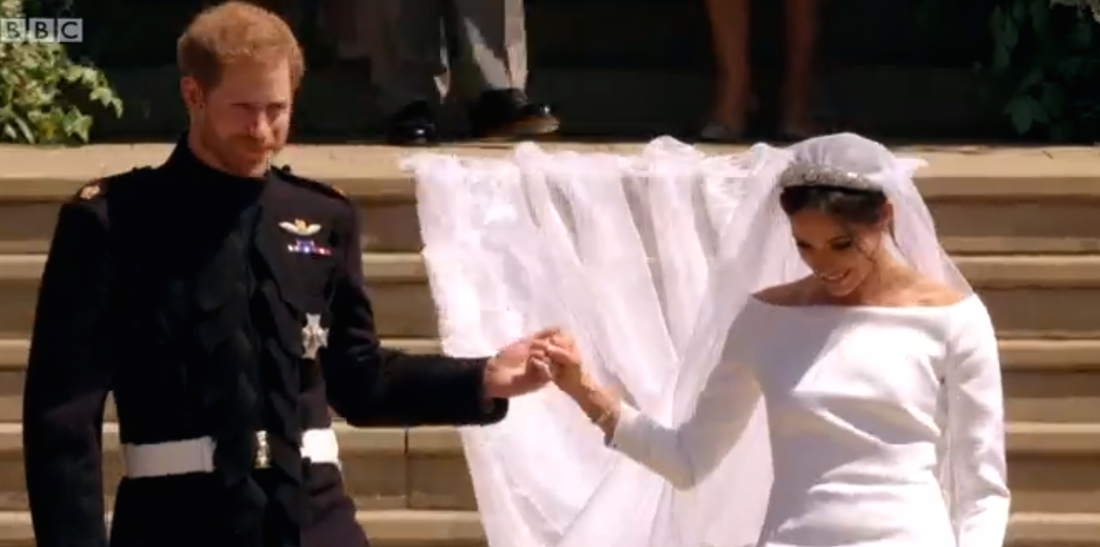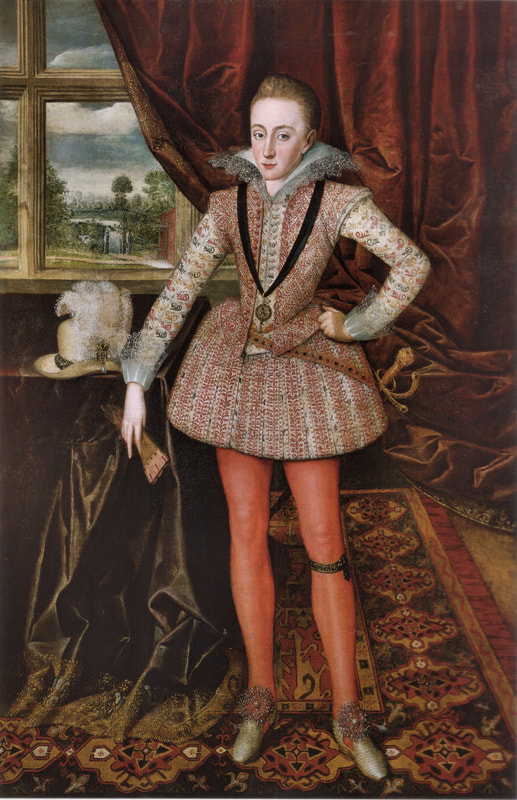|
Prince Henry Charles Albert David Wales—better known as Prince Harry—is doing a sterling (or, rather, top dollar) job to enhance Britain’s special relationship with America. Throughout his spectacular wedding ceremony, when he married Meghan Markle, his Los Angeles-born wife, with all the majesty that Britain can bring to such occasions, America was given a starring role: Bishop Michael Curry, head of the Episcopal Church in the US, gave a bravura performance, as he delivered a rousing address on the redemptive power of love; the gospel Kingdom Choir swayed from side to side as they sang Ben E. King’s Stand By Me; and, for the carriage procession, which took place in the shadow of the world’s oldest inhabited castle, the people of Windsor waved the Stars and Stripes alongside the Union “Jack”. Prince Harry and Meghan Markle walk down the steps of St. George's Chapel in Windsor as a newly-married couple But when he walked down the aisle of Windsor Castle’s St. George’s Chapel with his bride, Prince Harry was walking, metaphorically speaking, in the footsteps of another ginger-haired royal called Prince Henry—who was born more than four centuries ago. The earlier Prince Henry was destined to become King Henry IX. The great-great-great nephew of Henry VIII—the tyrant-king who had six wives—Henry Frederick Stuart was born to the future King James I in 1594. Heir to the throne (unlike Prince Harry, who’s now sixth in line), Henry was a renaissance prince, tutored in the arts and sciences, and schooled to be a king. Prince Henry in a painting which hangs in the National Portrait Gallery in London. It was produced around the time that Henrico was founded in Virginia A serious boy, he was barely a teenager when he started to take great interest in the efforts of English merchants to expand the country’s territory in the New World. Among other things, he championed the cause of the first great colonial adventurer, Sir Walter Ralegh, who was then imprisoned in the Tower of London on trumped up charges of treason. “No King but [my] father would keep such a bird in a cage,” he was heard to say. James was really only interested in the New World as a source of wonders for his exotic menagerie. As Shakespeare’s patron, the earl of Southampton, once noted: “The King is eager to have one of the Virginia Squirrels that are said to fly.” But young Prince Henry, with perhaps half an eye on the day when he would succeed his father and inherit an expanding empire, was altogether more engaged in the commercial ventures to America. And the English merchants who ran the Virginia Company—founded to finance new trading settlements across the Atlantic—capitalised on his enthusiasm. In 1607, when the first colonists reached the entrance to Chesapeake Bay on the east coast of America, they named their landing spot Cape Henry, in honour of the future king. It was the first American territory to be named after a male English royal—Virginia having been named after Elizabeth I, the “Virgin Queen”. They didn’t settle on this windy headland, however. Sailing on, they travelled up what became known as the James River, and named their colony Jamestown—both river and settlement honoring King James I. But they eventually tired of this marshy, malarial place, regarding is as “unwholesome” and only good as a port. So they went in search of another place to establish a new “principal residence and seat” for the settlement. They found it further up the James River, not far from where Richmond, the capital of Virginia, stands today. The colonists’ leader, Sir Thomas Dale, a grit-hard soldier, set his men to work on building a new town. According to one of the settlers, it eventually featured “three streets of well framed houses, a handsome church and…store houses, watch houses, and such like.” Proud of the new settlement, Dale christened it Henrico (also known as Henricus)—in honor of Prince Henry. From this point onwards, Henry was recognized for his efforts to forge links between England and America. Even the Spanish ambassador, representing a country that was the superpower of that time, noted that the young prince was starting to be regarded as “the Protector of Virginia.” But then, tragedy struck. In 1612, the year after Henrico’s founding, Prince Henry suffered a terrible typhoid fever. He never recovered, dying on the 6th November, aged just 18 years. He was laid to rest in Westminster Abbey. Dale mourned the passing of the great hope of Virginia—and he feared for the future of the fledgling settlement. Prince Henry, he wrote, was “the Great Captain of our Israel, the hope to have built up this heavenly new Jerusalem”. With his passing, “the whole frame of this business fell into his grave.” Happily, Dale’s gloomy prediction did not come to pass. The following year, one of the farmer-colonists, John Rolfe, produced his first crop of Nicotiana tabacum. The sweet tobacco leaf proved a great commercial success. And then, the year after that, Rolfe came to the rescue again, when he met a Powhatan princess in Henrico: Matoaka, better known as Pocahontas. When they married, their union marked the end of the brutal five-year Anglo-Powhatan war. In its way, it was a testament to the redemptive power of love. Economically self-sufficient, and finally enjoying peaceful relations with their neighbours, the English settlers could look forward to a hopeful future, as I explain in my new book, co-authored with John Butman: New World, Inc: The Making of America by England’s Merchant Adventurers (Little, Brown). Perhaps Prince Harry’s union with his American princess has the potential to spark similar feelings of hope. The world is entering a troubled and uncertain time. But as Bishop Curry put it in his peroration, when we discover the redemptive power of love, “we will make of this old world—a new world”. To purchase New World, Inc: The Making of America by England's Merchant Adventurers (Little, Brown, 2018)
Amazon: www.amazon.com/New-World-Inc-Englands-Adventurers/dp/0316307882/ref=sr_1_1?s=books&ie=UTF8&qid=1526753780&sr=1-1&keywords=new+world+inc Barnes & Noble: www.barnesandnoble.com/w/new-world-inc-john-butman/1126682733?ean=9780316307888#/ To pre-order (in the UK) New World, Inc: How England's Merchant Adventurers Founded America and Launched the British Empire (Atlantic Books, 5 July 2018) Amazon: www.amazon.co.uk/New-World-Inc-Englands-Merchants/dp/1786495473/ref=sr_1_1?s=books&ie=UTF8&qid=1526753851&sr=1-1&keywords=new+world+inc Waterstones: www.waterstones.com/book/new-world-inc/john-butman/simon-targett/9781786495471 WH Smith: www.whsmith.co.uk/products/new-world-inc-how-englands-merchants-founded-america-and-launched-the-british-empire-main/9781786495471 For more on Henrico, go to Henries Historical Park henricus.org For more on Cape Henry www.nps.gov/came/index.htm
1 Comment
|



 RSS Feed
RSS Feed